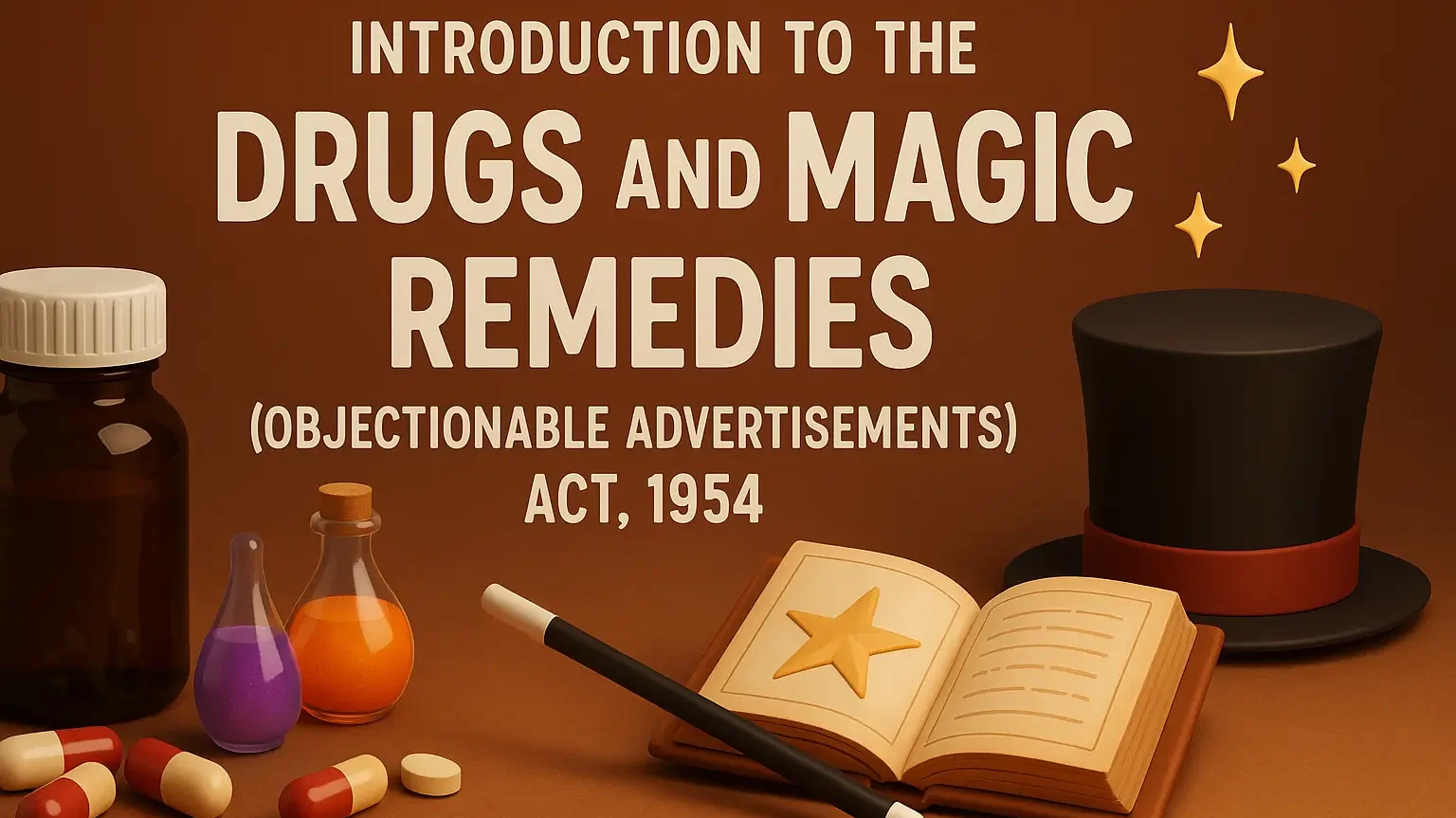Get an introduction to the Drugs and Magic Remedies Act 1954 aimed at controlling misleading ads of drugs and promoting ethical medical claims.
Purpose of the Act:
The Drugs and Magic Remedies (Objectionable Advertisements) Act, 1954 was enacted by the Government of India to:
- Regulate Advertisements related to drugs and magic remedies.
- Prohibit Misleading Claims about the efficacy of drugs and treatments.
- Protect Consumers from being deceived by false claims regarding cures for diseases.
- Prevent Exploitation of Vulnerability by stopping unethical practices in advertising drugs.
- Ensure Public Health and Safety by controlling advertisements that promote self-medication, which can be dangerous.
- Avoid False Superstitions by curbing magical and supernatural claims to cure diseases.
Need for the Act:
- Before the Act was enacted, advertisers often made false claims about drugs and remedies, misleading the public.
- People were drawn towards self-medication based on exaggerated advertisements, leading to health complications and exploitation.
- This Act was designed to protect individuals from such advertisements and prevent the promotion of superstitious beliefs.
Advertisements
Objectives
The main objectives of the Act are:
-
To Prohibit Advertisements of Drugs and Remedies that claim to:
- Cure or treat diseases listed under the Act.
- Provide magical solutions or supernatural cures.
-
To Regulate Advertisements for Drugs by:
- Ensuring truthful claims about their use.
- Preventing misleading and exaggerated claims.
-
To Ban False and Misleading Advertisements that may:
- Lead to self-medication.
- Promote unsafe or ineffective treatments.
-
To Prevent Exploitation of People’s Beliefs:
- Particularly those related to superstition and magic in curing diseases.
-
To Impose Penalties
- on offenders violating the Act through fines or imprisonment.

